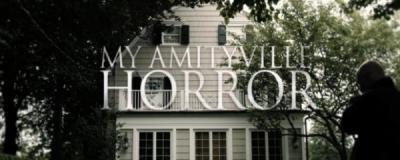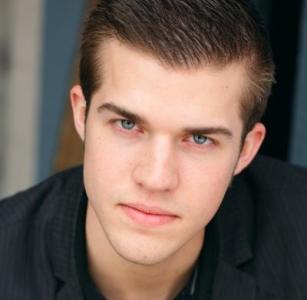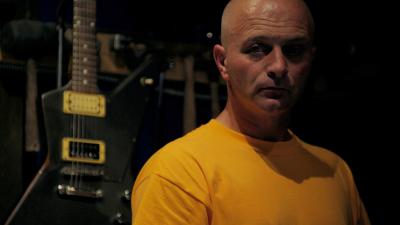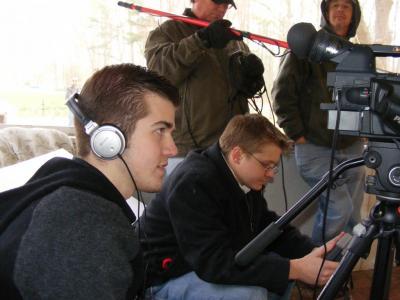By: debbie lynn elias

Who hasn’t heard of The Amityville Horror? If you haven’t, you’re not from this planet. In December 1975, newlyweds George and Kathy Lutz, together with Kathy’s three children from a prior marriage moved into what has since become the most famous haunted house in America. Located at 112 Ocean Avenue in the quiet little town of Amityville, the house already had a history at the time the Lutzes took up residence. In 1974, Ronald DeFeo, Jr., had shot and killed six family members in that house. When the Lutzes moved in, the DeFeo furnishings, clothing, etc., were still in the house and the Lutzes picked them up for a mere $400, together with an alleged $80,000.00 price tag for the 6 bedroom Danish colonial itself.
28 days after moving in, the Lutzes moved out, alleging paranormal phenomena and supernatural evil had taken hold of the house.
Multiple books and at least ten movies have been made over the years, not to mention countless television programs and analysis of “the supernatural”, thanks in large part to the initial “exploitation” of the situation by George Lutz by way of his own television appearances, lectures, interviews, etc., all of which has given rise to universal doubt as to the veracity of his paranormal claims. Whether there was possession or not is a question that has never been answered.
One of those who became obsessed with the Amityville house and the alleged horrors therein, is filmmaker Eric Walter. Amassing voluminous materials and documenting everything about Amityville on his website, www.amityvillefiles.com, it comes as no surprise that after a 35 year silence, Eric Walter is the one the now grown-up Danny Lutz chose to recount his version of the haunting and the recollections that haunt him to this day.
I spoke with writer/director Eric Walter in this exclusive 1:1 interview about the universal obsession with Amityville, the making of this documentary, MY AMITYVILLE HORROR, and the emotional scarring with which Danny Lutz lives to this very day.

I am enamored with this documentary.
Well, thank you very much. I’m very happy to hear that.
Anytime there‘s a subject like this, that is so notable and such a part of the collective conscience in history on such a sensationalized media level thanks to film, to see somebody delve behind that, I find fascinating. I appreciate the balance that you bring to the entire “Amityville phenomena”, shall we say.
Wow! I appreciate that. That was not an easy thing to do, especially being so close to the story as I’ve been for so many years now. It was a difficult task to kind of put everything you know about the story behind you and look at it from a personal perspective. That was what I wanted the film to do, and obviously indicated that in the title of the film. That’s all true. That’s a testament to Danny [Lutz] and his ability to communicate this story. During the post-production process, which was very long and very arduous for myself, which I did all of the editing, it was a difficult task. Because, yes, like I said, you have the story that everyone knows and you kind of have to wade through what you let the audience in on. Of course, being a documentary, you want to let them in on enough information as possible within a two hour mark. So it was a challenge, absolutely. With Danny, his overall feeling, for me the shocking part was the stepfather, George, who basically was the main vocal voice, the main voice of the story while he was still alive. He was on a lecture circuit, he was doing interviews for documentaries, he was doing television shows. You name it. He had his own projects underway for this. It was something that he definitely for all intensive purposes, was exploiting. I donft want to go as far as saying exploiting it financially, all of it, because the numbers donft really add up to say that they did this as a straight hoax, which I don’t believe. George definitely was out there trying to control the story so it’s very interesting to now have Danny, who was 10 at the time, to kind of pass the torch, shall we say.
One of the interesting things in some of the “roundtable” sit-downs that you have taking place within the film is the discussion of “where does the imagination end and how much of Danny‘s now recollections and re-tellings is fact and how much is fictionalized through his childhood imagination.” Was that difficult for him to participate in and for you, being so close to the project to begin with, are those difficult things to tackle and to address?
Yes. Especially for Dan. When we went into this, I definitely said that it was something where he [needed to] be open to sitting down with a therapist, he was open to sitting down with the investigative reporters. At one point, if you remember in the film, she literally asked him if this was all in your mind? All a fabrication of your memory? For me, that was the real horror. The real story was the long shadow that this has cast upon the participants and that Danny, again, is mired in this whole story to the point that I don’t think he fully realizes the parameters of a lot of the things he speaks about. And I don’t think that’s any blame on to him as an excuse fabricating things. I really feel that his memory of the event is skewed with things from the books, films, all the mass media that surrounded this thing for over 35 years now. So that was kind of my main focus for what really came out of the production of the film – finding Danny, getting to know him and have that for the first time really transcend the topic of Amityville alone.

It really kind of speaks to the paranormal in general. How do you go about explaining something unexplainable and trying to rationalize that to a public that is more or less intoxicated with the story. For so many years the story has been labeled a hoax and flat out that everything was made up, fabricated. I donft think itfs that easy. I think it lies somewhere between a hoax, maybe not a hoax, but some sort of fabrication, and also an element of truth. For me, it doesn’t make much sense that a family would up and leave everything they own in this house. Literally everything. Food, clothes, vehicles, you name it. And then refuse to go back to the house, and then move clear across the country to California and be living on food stamps with three kids in tow. They were newlyweds. For me, that’s never made any sense. I certainly think later on that they played into the opportunities that arose from this. But this was a different time period. I think that if they pulled a stunt like this today they’d be able to land a reality show or something for it. But it’s a different time. So, for now,this is a very unique case in the sense that all the participants are interesting characters by themselves. When I look at Danny, I think, “Where has this guy been for 35 years?” His story – all the anger. I feel like it‘s just a voice that‘s desperately wanting to be told. And all this anger and disdain is built up. I think that Danny absolutely holds his step-father responsible for the majority of what went down not only in the house but how it was dealt with after.
What is it that made you “the right guy” to make this documentary?
Basically, I had started this web archive named www.amityvillefiles.com, which is still alive and active and has quite a bit of viewers and readers. We do articles and I have several people writing for me. I was totally enamored with the story when I was a kid. When I was 12 or 13, I read the book and I was very very interested in the story. So, I tried to approach everything objectively. I developed the site because there was nothing there was presenting an unbiased perspective, something that was an objective look at all of the documentation, all of the stories, everything. Both the myths and the facts, all in one place that people could go and look. So, I wanted to do something in a creative fashion. We put together the website and it has become very popular. I was contacted by a friend of Danny Lutz in 2009 out of the blue, saying that Dan wanted to speak with me because he wanted to go public and he felt that I may be the right person to talk with him. Of course, at first I didnft buy it. I was a young guy. Ifm 28 now, but at the time I was even younger, so I was thinking that this is a big story and big opportunity but I wanted to be very cautious about how I approached it.
I didn‘t want to just do something to exploit the story any further. I flew to New York to meet with Dan in August 2009 and a lot of the original audio recordings, the grainy audio tapes that you see in the film, were the original tapes, the original conversations. If you remember in the film where he discusses the dog being hung on the chain and the nightmare of the dog he had. There were very strange situations. That was literally the very first [time Danny talked about it] – as soon as I could record, that’s what he started talking about. I had pictures of the house from an investigation was conducted in March of 1976, sitting in front of him, and he had never seen some of these photographs. It was photographs of his toys as a kid, his clothes, his bed. All these things that had been left there and it was to bring back these memories. So, I was recording and fortunately I got to use those recordings in the film. I think it really gave this element of – – for me anyway, I probably look at it differently than most because I know so much about it – – but I think it was just that intimate personal account that really sets this apart from everything that‘s been on the story, like you said, since. It’s not trying to tow the line from one end of the story to the other. It’s really trying to present, “This is this guy‘s story. Believe it if you want to.” That‘s not my job to press my opinion, my perspective upon it.
How challenging was it for you to put this together and round-up – you got some of the original newspeople that covered the story decades ago – how hard was it to track down people and then get them to participate in the making of this documentary?
A lot of those people, it wasn’t, most of them it wasn’t actually that hard. Admittedly. They’ve been kind of brought back every few years for every television documentary thatfs been done on this. What was interesting to me was to bring someone who had never probably spoken, ever, there was no pictures of him, no sound bytes, nothing, from Danny. Let’s get all of these people, such as Lorraine Warren and Joel Martin and Marvin Scott, all these people. Let’s bring all these people into the same room. Let’s get them to hash it out together. I would love to see, rather than someone sitting in a headshot edited the way that someone’s manipulated it in post-production. I would rather see them argue with each other. Hopefully, it will come out at some point on a DVD or something, but there’s so much footage that I personally have of a lot of those exchanges [with them] arguing about the story.

At the end of the day, having now done this, putting the www.amityvillefiles.com behind you, now having this documentary, what do you personally take away from this experience?
Personally, I wouldn’t term myself as an “Amityville agnostic”, however, I do believe that something happened to this family in that house, of some sort of paranormal nature. The paranormal is very subjective. I don’t want to say that I believe beings attacked them or it was an Indian burial ground or anything specific like that. I do believe that they believed that something happened in that house and again, it just doesn’t add up to me that a family would leave everything they owned back in this house and just wait and hope that they might make money on a book or something. None of that was on the table at the time and again, their whole perception of living in a house where mass murders had occurred may have also played into that as well. That’s ultimately, I think it‘s a very sad and tragic picture of something that snowballed into something that it never was or that it never initially wasn’t as elaborate as it first was reported and now it’s become the greatest haunted house story of all time. Unfortunately, Danny is the living embodiment of that now.
Do you think you‘ll go back and revisit this again in the future?
It’s a possibility that I have many more tricks up my sleeve. I just really want people to see the documentary and I think this is kind of my niche of work that I’m definitely looking forward to moving ahead soon on. I’ve got much more coming.
#












